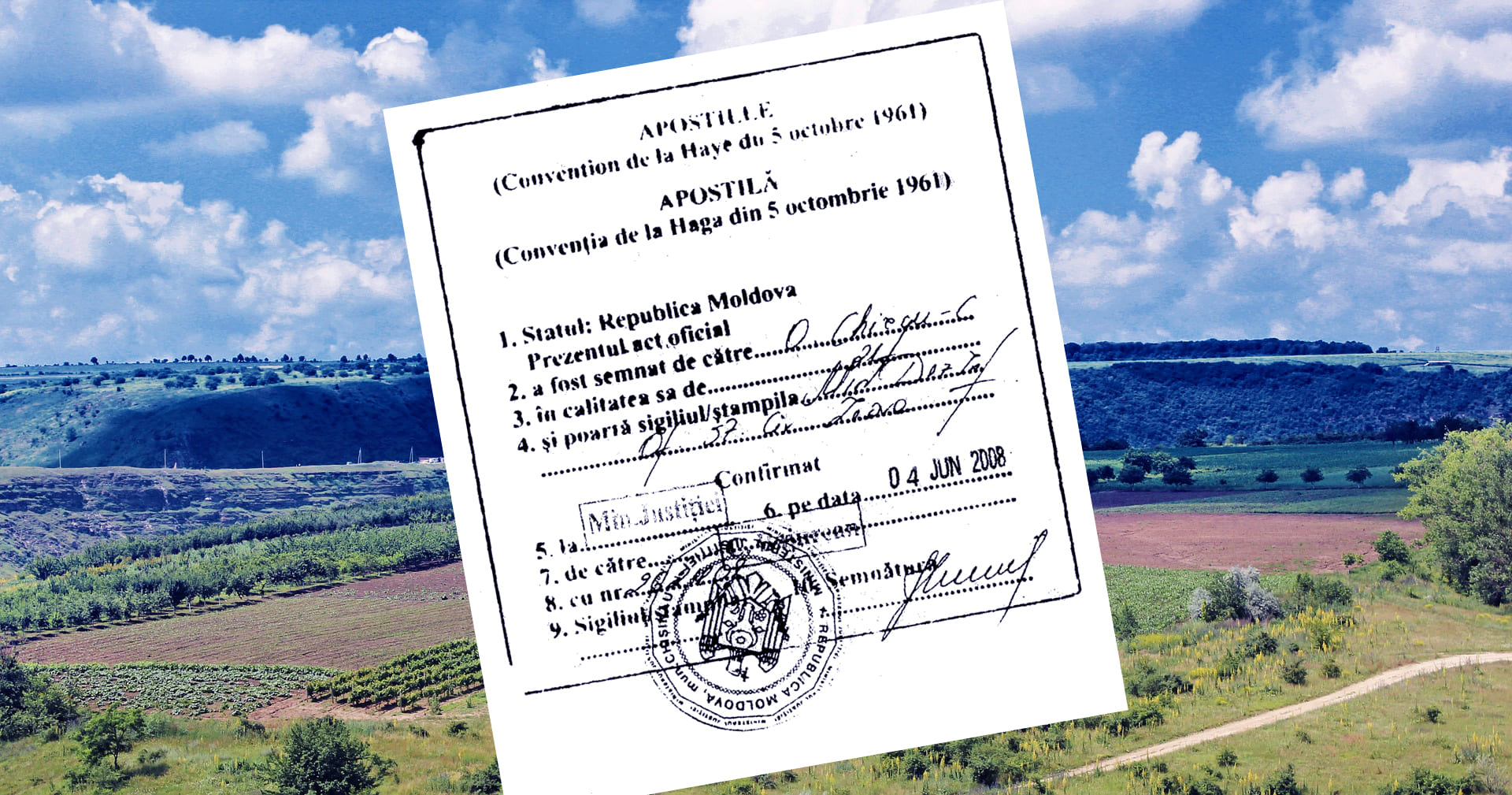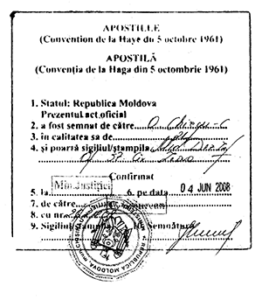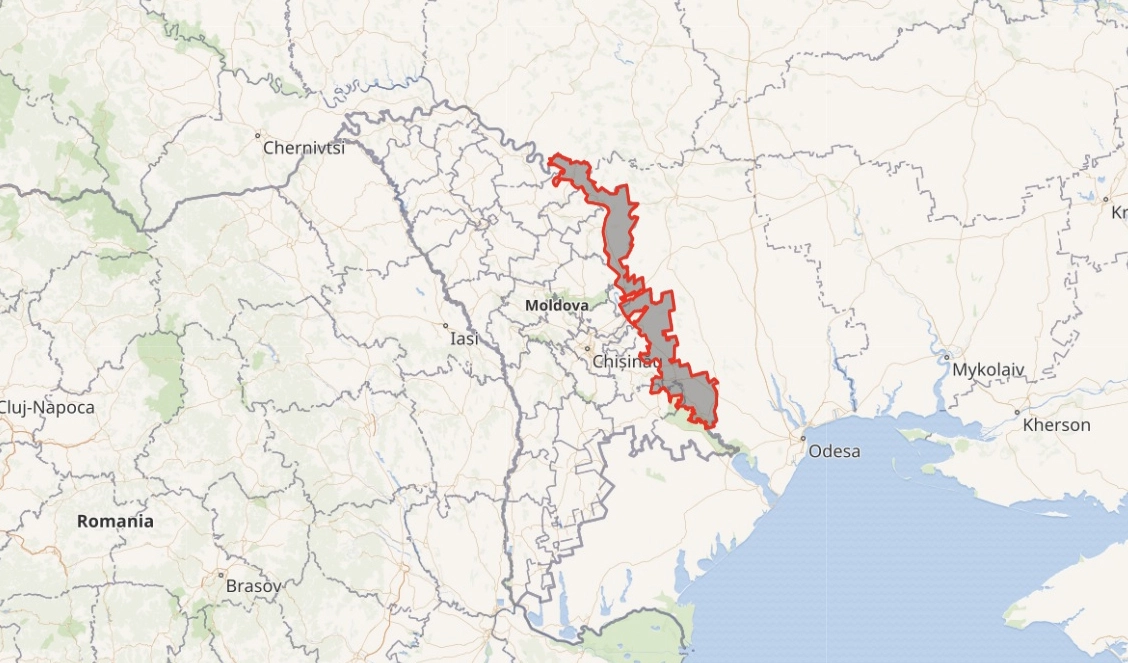
Apostille issuance in Moldova
Apostille for Moldova – Legalising Moldovan Documents.
What is an Apostille?
The apostille itself is a special stamp or printed form, which, in accordance with the Convention Abolishing the Requirement for Legalisation for Foreign Public Documents concluded at The Hague on 5 October 1961, is applied on the official documents of the states – parties of Convention, in order to abolish these documents from the necessity of diplomatic or consular legalization.

Accordingly to the Convention, apostille certify the authenticity of the signature, the capacity in which the person signing the document has acted and, where appropriate, the identity of the seal or stamp which it bears.
The Convention are applied regarding the public documents which were issued in the territory of a Contracting State and shall be submitted to the territory of another Contracting State.
Apostille is applied on official documents emanating only from the institutions and organizations of the Republic of Moldova as a party to the Hague Convention, and does not require further certification or consular legalization and shall be recognized by the authorities of all States – parties to the Convention.
A complete list of States parties of Convention of 5 October 1961 (Apostille convention) can be found in a separate article.
To which documents does the Convention apply?
Accordingly to the Convention, the following are deemed to be public documents:
a) documents emanating from an authority or an official connected with the courts or tribunals of the State, including those emanating from a public prosecutor, a clerk of a court or a process-server (“huissier de justice”);
b) administrative documents;
c) notarial acts;
d) official certificates which are placed on documents signed by persons in their private capacity, such as official certificates recording the registration of a document or the fact that it was in existence on a certain date and official and notarial authentications of signatures.
To which documents does the Convention not apply?
The Apostille Convention shall not apply:
a) to documents executed by diplomatic or consular agents;
b) to administrative documents dealing directly with commercial or customs operations.
What is the form and content of the Apostille?
According to the Convention, apostille has the form a rectangle with sides not less than 9 cm, and must correspond to the model annexed to the Convention.
The text of the Apostille should include the following details:
• Country … [country name]
This public document
• has been signed by … [name]
• acting in the capacity of … [function]
• bears the seal/stamp of … [authority]
certified
• at … [location]
• the … [date]
• by … [name]
• No … [apostille registration number]
• Seal/stamp … [of the authority giving the apostille]
• Signature … [signature of authority giving the apostille]
Apostille can be applied in one from official languages of the Convention (French and English), as well as in the official language of the issuing country.
The title “Apostille (Convention de La Haye du 5 octobre 1961)” shall be in the French language. Accordingly to Convention, apostille shall be placed on the document itself or on an “allonge”.
Who issues the apostille in Moldova?
For the moment In the Republic of Moldova with right to issue apostille are empowered the following state bodies:
1. Ministry of Justice of the Republic of Moldova as a authority responsible for application of apostille on the following official documents issued in the name and in the interests of individuals and legal entities:
a) acts of civil status issued after February 24, 1998 and duplicates of civil status acts, except for death certificates issued in the three-month period before the submission for apostile application;
b) documents issued by Ministry of Information Technologies and Communications ;
c) criminal records certificates issued by the Ministry of the Interior;
d) study documents issued by the accredited in accordance with the legislation education institutions, will be presented together with confirmation from educational institution which issued the act of study or from the Ministry of Education;
e) notarial acts;
f) court decisions or other acts emanating from the judicial authorities, including the courts, prosecutors, court clerks and bailiffs;
g) certificates issued by the National Social Insurance House, certifying the work experience;
h) medical certificates issued by the specialized medical centers for medical examination of emigrants and immigrants, and the National Scientific and Practical Centre of Preventive Medicine / Center for Prevention and Control of AIDS;
i) other documents issued by official bodies of the Republic of Moldova on behalf of individuals and legal entities covered by the Convention Abolishing the Requirement of Legalisation for Foreign Public Documents.
The above is intended to provide a brief guide only. It is essential that appropriate professional advice is obtained. Our office will be glad to assist you in this respect. Please do not hesitate to contact us.
ASK A QUESTION or ORDER A SERVICE
click the icon to call us

Written by : Law Office Viorel Furtuna
Call Us: +3736988884
LATEST PUBLICATIONS
December 6, 2025
December 6, 2025
December 6, 2025








